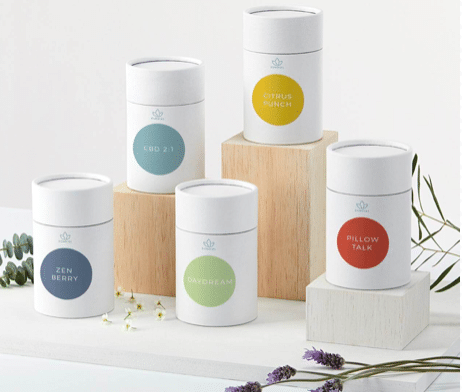Sundial Growers is one to own in Canadian cannabis, says ATB

The Canadian cannabis space has been decimated over the past year and a half, with companies still bleeding money and investors left unsure whether there’s still value in holding some of the more established names. But ATB Capital Markets analyst Frederico Gomes has just the prescription for success in Sundial Growers (Sundial Growers Stock Quote, Charts, News, Analysts, Financials NASDAQ:SNDL), a stock which is currently trading at multi-year lows but one where Gomes sees a ton of promise. In fact, the analyst in a recent report called Sundial most compelling idea in the space.
Calgary-based Sundial has cannabis cultivation and production facilities as well as retail holdings in both cannabis and alcohol, the latter of which the company picked up in March with the $320-million acquisition of Alberta-based Alcanna, which is the largest private-sector alcohol retailer in Canada and one of the largest in North America.
Looking at recent numbers for Sundial, the company posted its first quarter financials in mid-May, showing net revenue of $17.6 million, up 78 per cent year-over-year. That topline broke down to $8.8 million in cannabis cultivation and production, $7.5 million in cannabis retail and just one day of revenue contribution from its new liquor segment at $1.3 million. To give further perspective, Sundial said that over the Jan 1 – March 30 period Alcanna’s own revenues were $162.5 million with a gross margin of about $36.3 million. (All figures in Canadian dollars except where noted otherwise.)
“The first quarter of 2022 was both transformational and transitional for Sundial,” said Zach George, CEO, in the press release on May 16. “We are now Canada’s largest private sector distributor of both liquor and cannabis with 354 retail locations and have quickly benefitted from collaboration with our new legacy Alcanna colleagues.”
“Sundial’s regulated products platform provides unique insights into evolving consumer preferences and value propositions. We continue to strengthen and transform our business while benefitting from vertical integration across our segments under a shared services model,” he said.
The event behind Gomes’ latest report on Sundial, published on June 1, was a virtual investors marketing meeting held by ATB on May 31. There, Gomes said the discussion revolved around two key themes: the risks and opportunities in Sundial’s investment portfolio and the advantages of being a vertically-integrated platform in Canada. On the former, Gomes said capital is becoming scarcer in the Canadian cannabis industry and many companies are still far from profitability, which means that a company like Sundial will have a lot of opportunities to expand its production and retail footprint by buying up assets at discounted prices.
Gomes said this makes up the core of his thesis on SNDL.
“Importantly, we believe management will deploy capital judiciously and not fall into the trap of buying unprofitable market share or overreaching for yield. We view SNDL as a consolidator in the early innings, and we believe the stock offers the most compelling risk-reward alternative in the sector as both a defensive (strong balance sheet and diversification) and contrarian (net purchaser amid market downturns) play,” Gomes wrote.
On the vertical integration side, Gomes said Sundial’s ongoing retail store expansion and deeper penetration of its products within its own stores gives the company “further data to stay on top of consumer trends and reach a larger portion of the market.”
In essence, Gomes calls Sundial both a contrarian play in the market due to its status as a net purchaser amid the market downturn but also a defensive play with regards to its cannabis and now alcohol retail businesses.
“SNDL offers exposure to a diversified investment portfolio, the entire value chain of Canadian cannabis, and liquor retail in Western Canada. While the story has been hard to follow due to SNDL’s rapid transformation, we believe the picture will become clearer from Q2/22 onward as fully-consolidated results (including Alcanna) are reported,” Gomes wrote.
“We estimate SNDL has ~US$0.31 per share (fully diluted) in net cash and investments; as such, we believe the market is attributing little to no value to the Company’s Canadian cannabis and liquor retail operations, offering downside protection and compelling upside from current levels,” he said.
With the update, Gomes reiterated his “Outperform” rating on the stock and one-year price target of US$0.80 per share, which at the time of his report’s publication represented a projected return of 83 per cent.
Sundial’s share price peaked in February of 2021 when it rose to over $2.00 for a brief stint before falling back, and aside from a few upswings the stock has been heading downward since then. Currently, SNDL is trading around US$0.38 per share and has a year-to-date return of negative 35 per cent.


